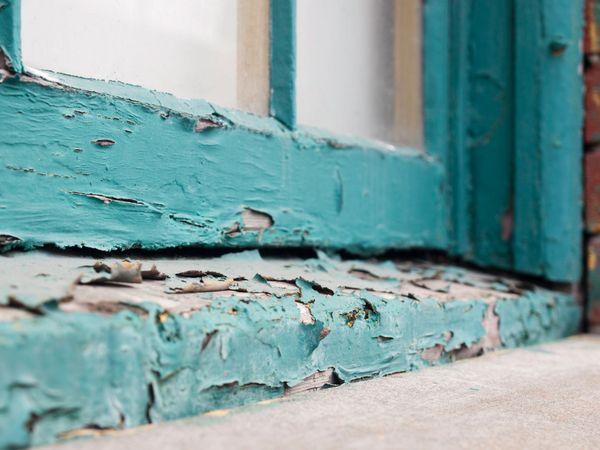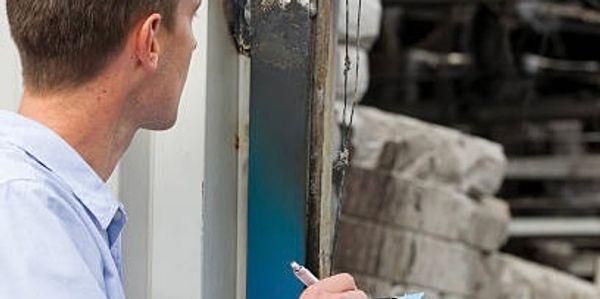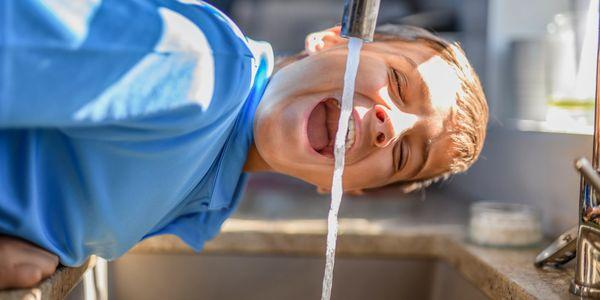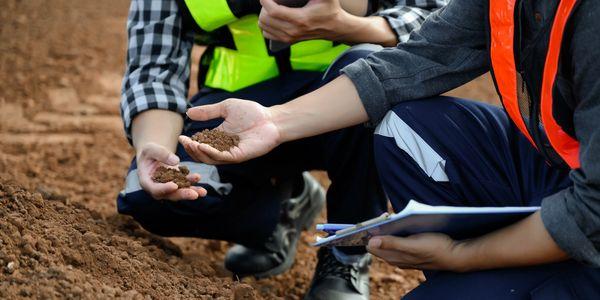
Certified Expertise
As certified Lead Paint Inspectors and Lead Risk Assessors, we provide comprehensive services to help property owners, contractors, and families ensure a safe environment. Our inspections include lead dust testing, detailed visual assessments, and analysis of water and soil to identify potential lead hazards both inside and outside the home. With professional training and certification, we deliver accurate results and clear reports you can rely on for compliance, renovations, or peace of mind. Whether you’re a homeowner, landlord, or business, our goal is to provide thorough, affordable, and dependable lead inspection services that put health and safety first.

Visual Inspections for Lead Dust Hazards
After abatement, renovation, or remodeling work involving painted surfaces, a visual inspection is crucial to confirm that no visible dust or debris remains. Lead dust is one of the most common and dangerous sources of exposure, especially for children. Ensuring a clean environment safeguards occupants and provides verification that work areas are safe.

Lead Dust Wipe Testing
Lead dust wipe testing goes beyond a simple visual check. Surfaces such as floors, windowsills, and window troughs are wiped with special collection materials, and the samples are analyzed in a laboratory for lead content. This testing is important because harmful levels of lead dust can be invisible to the eye but still pose serious health risks. Confirming that lead dust levels are below regulatory thresholds is the only way to guarantee the environment is truly safe for occupancy.

Water Sampling
Lead isn’t just a concern in paint and dust - it can also enter drinking water through old pipes, solder, and plumbing fixtures. Even low levels of lead in water can pose serious health risks, particularly for children and pregnant women. Because lead has no taste, smell, or color, the only way to know if your water is safe is through professional testing. By testing your water for lead, you take a proactive step toward creating a safer, healthier environment.

Soil Sampling
Lead contamination isn’t limited to paint and water—it can also be found in soil. This is especially common in older neighborhoods where lead-based paint may have deteriorated outdoors, or where past industrial activities or the use of leaded gasoline left residues in the ground. Because children often play outside and may come into contact with contaminated soil, testing is a critical step in creating a safe environment. By testing soil for lead, you gain peace of mind knowing your outdoor spaces are safe for families, tenants, and future projects.
NJ Lead-Safe Certification Act: What
Landlords Need to Know
On July 22, 2022, New Jersey enacted its newest lead-based paint law—the Lead-Safe Certification Act. This law directly impacts all rental properties built before 1978, requiring regular inspections to protect tenants from the dangers of lead exposure.
Because lead hazards are still present in many older homes, this law was designed to ensure safer rental housing across the state. As a landlord, understanding your obligations is essential for both compliance and the well-being of your tenants.
Key Requirements for Landlords
- Applies to Pre-1978 Rentals: Every rental unit built before 1978 must undergo lead-safe inspections.
- Town-Specific Testing Methods: Inspection requirements vary depending on your property's location. Some towns require dust wipe sampling, while others allow for visual inspections only. 👉 [Click here] to see which type of test your town requires.
- Tenant Notification: Landlords must provide tenants with a copy of the lead-safe certification and attach it as an exhibit to the lease agreement.
- Inspection Intervals
- Units must be reinspected every three years.
- If a tenant turnover occurs after two years, a new inspection is required before the new tenant moves in.
- Certification Validity: A Lead-Safe Certification remains valid for two years from the date of issuance.
- Exemptions
- Properties built after 1978.
- Certain multiple dwellings with three or more units (depending on construction and compliance history).
Why Compliance Matters
Failing to comply with the Lead-Safe Certification Act can result in fines, legal liability, and most importantly, unsafe conditions for tenants - especially children, who are most vulnerable to lead poisoning. By following the inspection requirements, landlords not only avoid penalties but also:
- Protect tenants from serious health risks.
- Safeguard property value by addressing hazards early.
- Provide peace of mind to renters through documented safety measures.
Staying Ahead of the Law
Compliance doesn't have to be complicated. Partnering with a certified lead inspector makes the process seamless:
- Schedule the required inspection.
- Receive your certification if the property passes.
- Keep your certification valid through timely re-inspections.
- Provide documentation to tenants as required.
By staying proactive, landlords can protect their investment, ensure tenant safety, and remain fully compliant with New Jersey law.
Contact Us
MVB Homes, LLC
Somerset, NJ, USA
To inquire about general lead safety concerns or federal lead law information,
you can call the National Lead Information Center at
1-800-424-LEAD (5323).